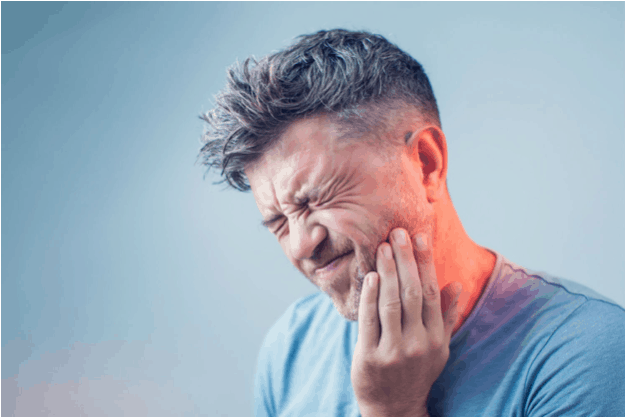Dental health can feel overwhelming. Most people are told the basics of dental care from the time they are children. Brush your teeth after meals, floss every day, and limit candy and sweets. While this may initially seem like a simple enough formula to attain good oral health, there is far more involved in maintaining your dental health.
What Are the Major Dental Problems?
In order to qualify as a “major” dental problem, the problem in question has to affect a significant amount of the population. Major problems are also those that cannot be remedied at home and require a visit to your dentist to correct or treat. Before understanding the most common dental problems, it is important first to identify what those problems are.
Tooth Decay
Dental caries is considered the most substantial dental disease afflicting adults and children. Cavities are frequently regarded as being simple or minor inconveniences rather than true areas of concern. This is not true of cavities, however, as even a series of small cavities can grow and cause a great deal of pain and eventually tooth loss. A single untreated cavity can lead to dramatic damage to the teeth and gums and lead to lifelong dental problems.
Gum Disease
Gum disease is also extremely common. Current estimates suggest that over 40% of adults experience some form of gum disease in their lifetime. The stages of gum disease are identified separately.
Gingivitis is the lesser form of gum disease. Gingivitis is usually characterized by bleeding and red or tender gums. Gingivitis typically responds well to treatment. Early-stage gum disease can be halted and reversed when it is still in its infancy.
Periodontal disease (also called periodontitis) is a more serious form of gum disease. Bad breath, receding gums, dry mouth, and more can indicate the presence of advanced gum disease. Left untreated, periodontal disease can lead to severely damaged gums and teeth, tooth loss, and even systemic disease. Diabetes and cardiovascular disease (CVD), in particular, have been linked to periodontal disease.
Pain and Sensitivity
Pain and sensitivity are two common precursors to dental emergencies. They can suggest the presence of a minor concern. Minor gum disease and cavities are common causes of sensitivity. Advanced gum disease and more significant tooth problems can also be identified by the presence of pain and sensitivity and could indicate the need for a root canal or other substantial dental procedure.
Pain and sensitivity can also be caused by cold sores or mouth sores. The precise cause of these sores remains uncertain. Some people experience relief from sores and ulcers following changes to oral health regimens.
Why Do Dental Problems Arise?
Dental problems typically indicate the presence of other health concerns. Brushing and flossing inadequately is one of the most common reasons dental problems arise. There are additional factors that can come into play regarding oral health, including diet, genetics, and medical conditions.

Poor Oral Hygiene and Diet
Poor oral hygiene and diet are the two factors that most commonly cause dental problems and lead to the need for dental intervention. Oral hygiene practices are fairly straightforward for most. Teeth should be brushed at least twice each day. Current recommendations suggest that you floss at least once. People prone to decay may also wish to employ a fluoride rinse to further protect teeth from damage and decay.
Oral hygiene can also be used to ward off gum disease. Because gum disease is caused by tartar and bacteria getting below the teeth and gums and causing inflammation and disease, making a habit of consistently removing food, debris, and plaque is one of the best ways to prevent gum disease development. A dentist can more thoroughly deliver advice, diagnosis, and treatment of gum disease, but oral hygiene is considered the first line of defense.
Diet is similarly important in preventing disease and decay. It is a common misconception that a diet must be low carb or free of candy to adequately support oral health. Instead, diets high in refined sugars and sugary drinks are the more likely culprits. A bar of dark chocolate, for instance, is unlikely to stick to teeth and encourage bacterial growth the way that a high-sugar coffee drink will.
Regarding positive effects. I always have this noticeable increase in the blood flow as well as better stamina with the pills, I use 50 mg of Viagra. Regarding negative effects: my nose is blocked for an hour or so after taking a pill, as if I get a cold. No other side effects in view. Overall, it feels 8 out of 10, with a definitely improved erection.
Tacky candy is far more dangerous than a potato or slice of bread.
Maintaining a diet that encourages oral health typically does not involve removing most carbs but instead removing highly processed and sugar-dense foods that remain stuck to and between the teeth up to hours after being consumed. Drinks that are gradually sipped over a period of an hour or more may prove even more problematic.
Genetic Factors
Genetic factors typically function as risk factors rather than causes outright. Genetic factors might be the source of weak tooth enamel, for instance, but consistent oral hygiene practices can successfully combat genetic predisposition toward decay.
Genetic factors can also be involved in the development of gum disease, but they don’t need to cause despair. Dental conditions that have a genetic component can usually be managed with consistent dental hygiene practices and regular visits to and exams from the dental office.
Comorbid Conditions
Some medical conditions negatively impact oral health. Other conditions have cyclical relationships with oral health, wherein one contributes to the other and vice versa. Diabetes is one condition that can be negatively impacted by oral health and can lead to tooth problems. Gastroesophageal Reflux Disease (GERD) is another condition that can negatively impact oral health.
Overcoming Dental Problems
Understanding dental problems and their origin is vital to overcome them. Targeting dental problems is best achieved by mixing a preventive and restorative approach. This involves treating all dental issues as soon as they arise and taking measures to prevent the progression of existing conditions and the development of more. Overcoming dental problems can be accomplished through a combination of steps. These steps include advanced technology, regular check-ins, and consistent home care practices.
Using Advanced Technology
Advances in dental technology can be enormously helpful in treating dental issues. Lasers and digital imaging technology have both made treating gum disease and repairing decayed or damaged teeth a far more precise art. Advances in technology have also made it possible to treat issues with less pain and discomfort, making visits to the dentist far less frightening and uncomfortable.
Checking In Regularly
One of the best things you can do to improve your oral health and overcome problems is to visit your dentist regularly. Dental exams are designed to stay on top of all potential issues in order to prevent damage, decay, and any precursors to truly dangerous dental conditions. Making regular dental visits a priority can prevent the onset of decay and gum disease and can also catch signs of oral cancer.
Regular check-ins can also help teeth retain their aesthetic. When teeth are cleaned professionally on a regular basis, they will retain more of their color and shine. Dental cleanings can also stay ahead of any staining caused by highly pigmented foods and drinks.
Utilizing Home Care
Home care is one of the most important facets of overcoming oral conditions. Far from simply brushing and flossing regularly, home care involves everything from diet and exercise to proper sleep habits and dental rinses. Dental health has long been ignored in favor of other medical conditions, but dental health and general health are closely tied.
Utilizing home care can help you stay ahead of any potential issues. Gum disease, tooth decay, chronic ulcers, and even bad breath can benefit from improvement at home. Upping your oral hygiene game can do wonders for supporting and repairing oral health.
Improved dental hygiene routines and a healthy diet filled with whole foods can reasonably be expected to produce a high degree of oral health. Reach out to our dental office in Raleigh, NC, today to learn more about recognizing and overcoming the most common dental problems you might come across.






